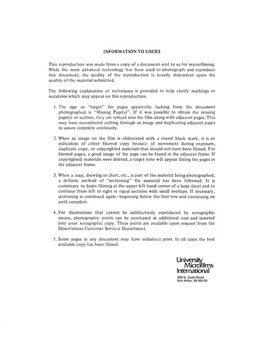| dc.contributor.author | Bazaz, Mohammad Sadegh, | en_US |
| dc.date.accessioned | 2013-08-16T12:29:16Z | |
| dc.date.available | 2013-08-16T12:29:16Z | |
| dc.date.issued | 1984 | en_US |
| dc.identifier.uri | https://hdl.handle.net/11244/5282 | |
| dc.description.abstract | It has been proposed in the literature that this only-expensing rule has hurt small, formerly capitalizing firms and forced them to reduce their R&D expenditures. In this case, manager-controlled firms, which are more risk averse, were expected to reduce their spending on R&D more than owner-controlled firms. In reaction to the mandatory rule, some factors such as size and debt convenants of a firm are also anticipated to be influencing variables which may cause further reduction of R&D expenditures. | en_US |
| dc.description.abstract | In 1974, the Financial Accounting Standards Board issued the highly controversial Statement No. 2, "Accounting for Research and Development Costs." In it, the Board mandated all U.S. firms to expense their R&D expenditures in the year of occurrence. The Board took its position primarily to make firms' financial statements more uniform and to be more conservative by avoiding capitalizing treatment that would introduce an asset into the balance sheet whose value and life are uncertain. | en_US |
| dc.description.abstract | This study conducted an investigation via sampling from capitalizing as well as expensing firms and dichotomized them into manager- and owner-controlled groups. Using regression analysis, this study was able to support the following hypotheses: (1) capitalizing firms have been adversely affected by the rule and sharply decreased their R&D expenditures, (2) manager-controlled firms have decreased more R&D expenditures than owner-controlled firms, and (3) degree of leverage was a negative factor for capitalizing firms causing to decrease their R&D expenditures even further. This study however, failed to find a significantly different reaction between smaller and larger firms, probably because the sample extracted from all small firms with fewer than 1500 employees. | en_US |
| dc.format.extent | x, 132 leaves ; | en_US |
| dc.subject | Business Administration, Accounting. | en_US |
| dc.title | The economic effects of FASB Statement No. 2 on small firms' R&D expenditures / | en_US |
| dc.type | Thesis | en_US |
| dc.thesis.degree | Ph.D. | en_US |
| dc.thesis.degreeDiscipline | Michael F. Price College of Business | en_US |
| dc.note | Source: Dissertation Abstracts International, Volume: 45-08, Section: A, page: 2580. | en_US |
| ou.identifier | (UMI)AAI8425535 | en_US |
| ou.group | Michael F. Price College of Business | |
